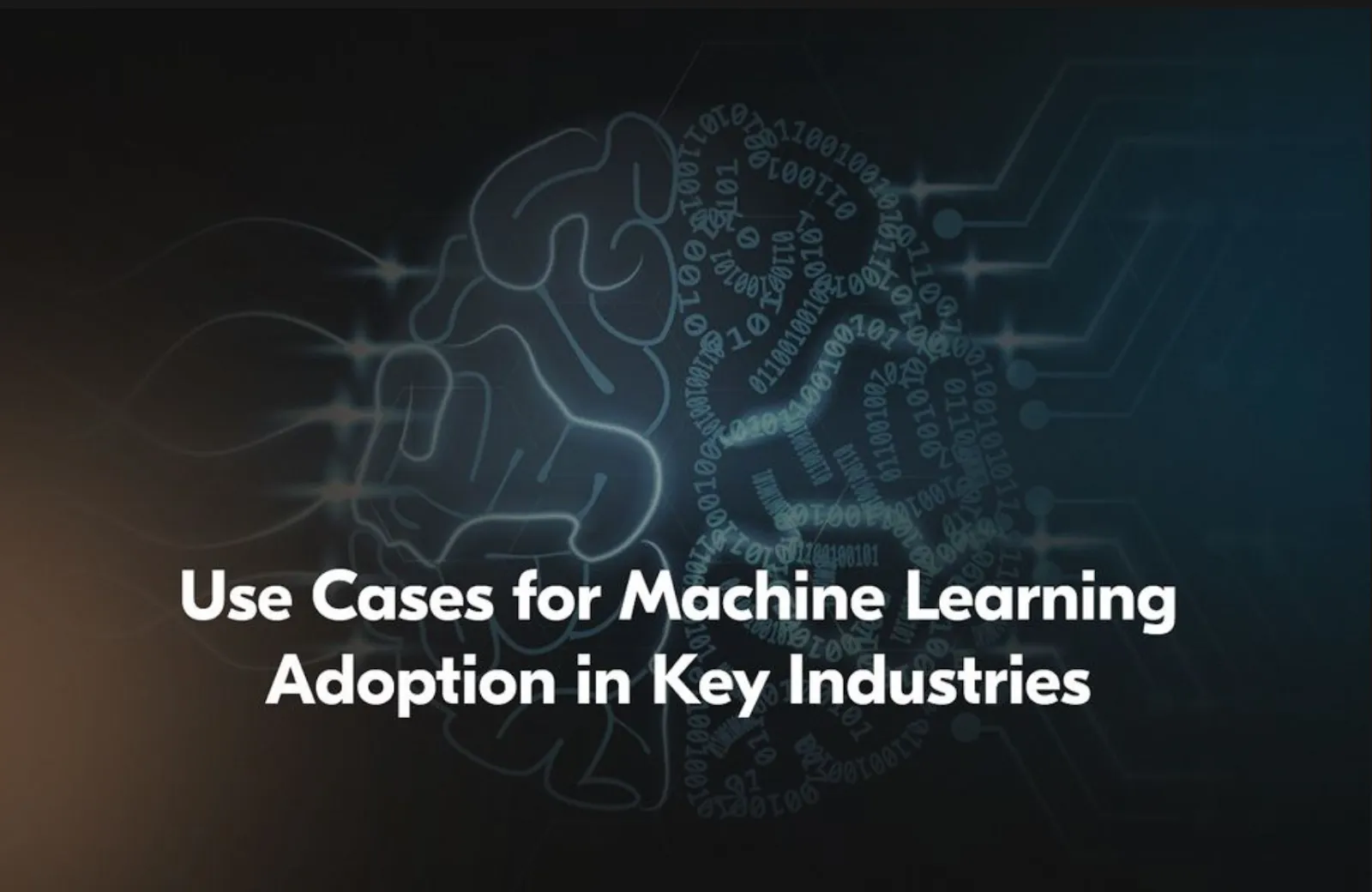
Key Takeaways:
- Machine Learning Benefits: Improved decision-making, increased efficiency through task automation, and enhanced customer experiences via personalization.
- Market Outlook: The global ML market, valued at $204.30 billion in 2024, is projected to reach $528.10 billion by 2030, with a CAGR of 17.15%.
- Competitive Edge: Machine learning sharpens competitiveness, drives innovation, and fosters sustainable growth.
Machine learning (ML) is a transformative tool across various industries. Exploring ML use cases within organizations leads to significant perks like cost savings, efficiency improvements, competitive advantage, and enhanced stakeholder satisfaction.
With a strong foundation built over decades, machine learning is firmly rooted in industry operations. Let’s dive into the benefits of adopting ML in global business operations, bolstered by real-life examples and expert insights.
How Does Machine Learning Work?
Machine learning, a subset of artificial intelligence (AI), involves statistical models and algorithms enabling computers to learn from data and make predictions without explicit programming. Key steps include data collection, preprocessing, feature selection, model training, evaluation, and deployment.
From a business perspective, machine learning automates tasks, derives insights from data, and supports data-driven decisions. Common ML applications span customer relationship management, financial services, healthcare, supply chain management, and more.
Machine Learning Industry Projections
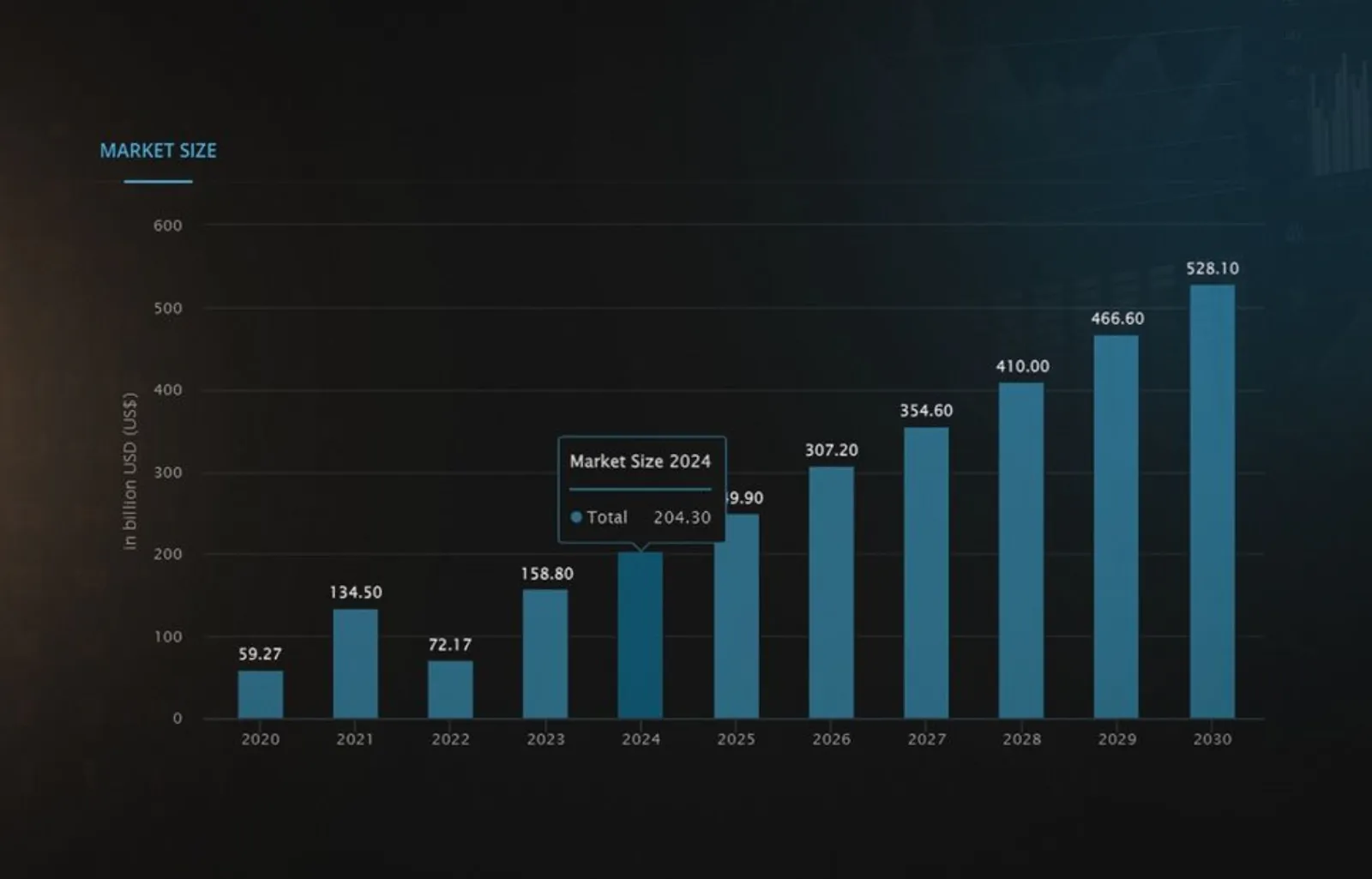
The global ML market, worth $204.30 billion in 2024, is anticipated to grow to $528.10 billion by 2030, with a CAGR of 17.15%.
Benefits of Employing Machine Learning
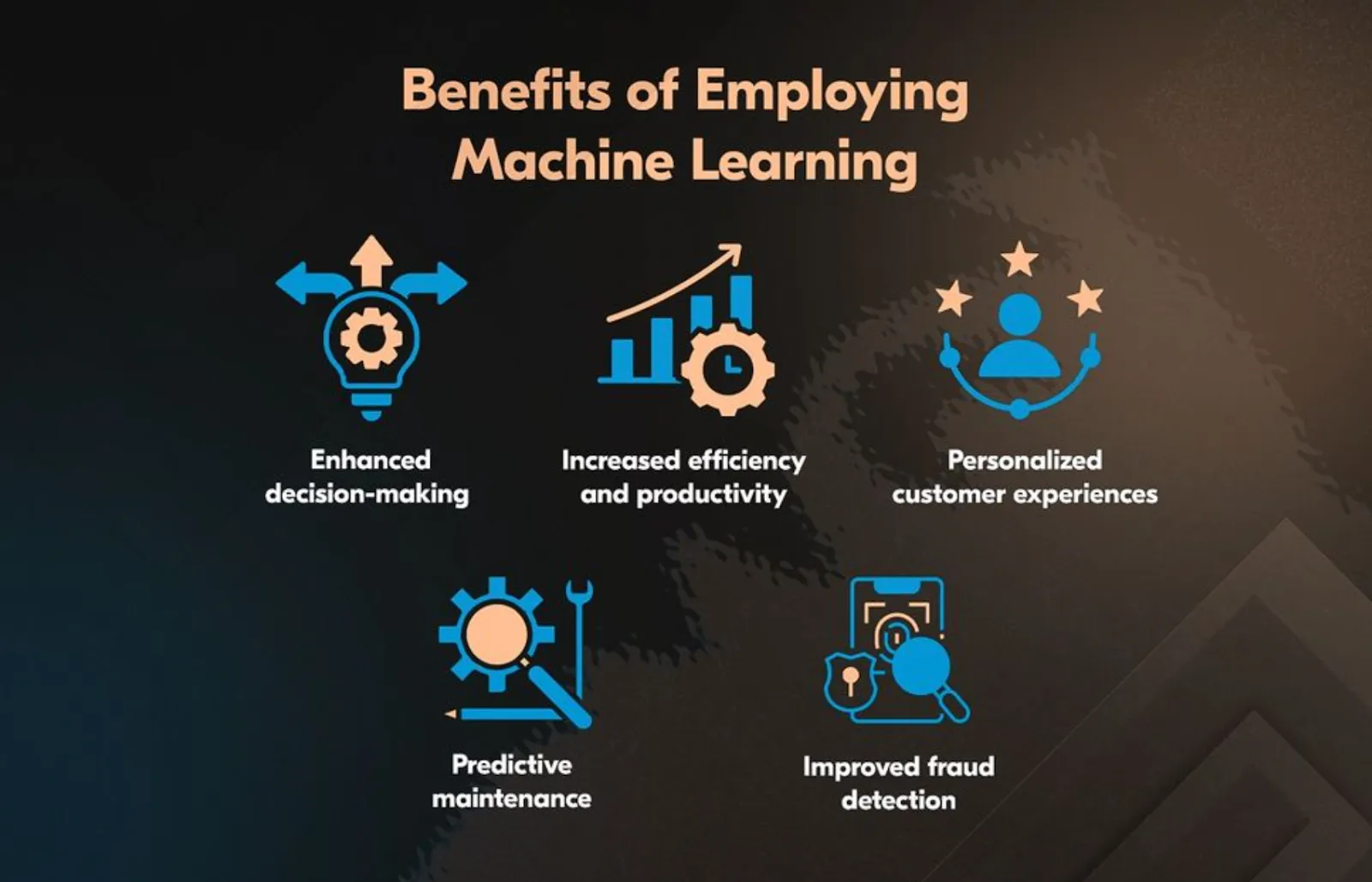
Adopting machine learning provides businesses with various advantages:
- Enhanced Decision-Making: Algorithms analyze vast data sets to uncover insights. This enables rapid, accurate decision-making, anticipation of market shifts, risk identification, and opportunity capitalization.
- Increased Efficiency and Productivity: Automating repetitive tasks streamlines processes, allowing employees to focus on strategic activities.
- Personalized Customer Experiences: ML tailors recommendations, promotions, and content to individual preferences, boosting satisfaction and loyalty.
- Improved Fraud Detection and Security: Real-time algorithmic analysis detects fraudulent activities and security threats, helping businesses proactively mitigate risks.
- Predictive Maintenance: Algorithms analyze equipment sensor data to forecast failures, minimizing downtime and optimizing performance.
ML Use Cases in Major Industries
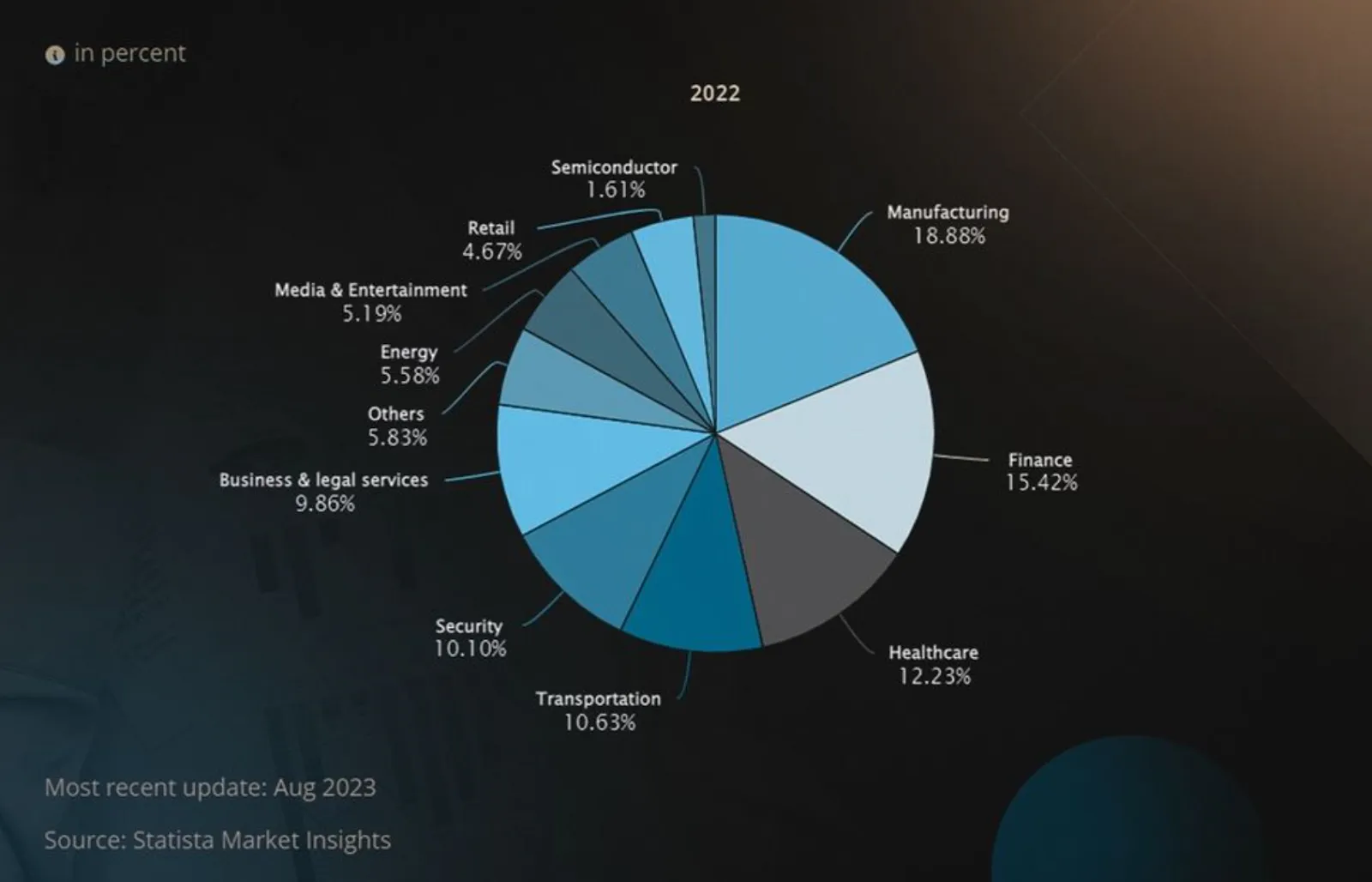
Machine learning is revolutionizing key industries through various applications:
1. Healthcare
- Patient Outcomes Predictions: ML analyzes electronic health records (EHRs) for predictions, optimizing treatments. Example: Google’s DeepMind Health.
- Medical Imaging Analysis: Algorithms detect abnormalities in radiology images. Example: IBM Watson Health.
- Patient Experience: Digital solutions automate patient appointments and interactions. Example: Levi’s integration of ML in biomaterial analysis increased data processing accuracy by 40%.
2. Fintech
- Fraud Detection: ML analyzes transactional patterns for detecting fraud. Example: PayPal.
- Service Personalization: Robo-advisors offer tailored investment advice. Example: Wealthfront, Betterment.
- Trading Analytics: Algorithms optimize trading strategies. Example: Acropolium’s data profiling tool reduced processing time by 30%.
3. Logistics and Transportation
- Route Optimization: Algorithms reduce fuel consumption and delivery times. Example: UPS.
- Demand Forecasting: ML ensures timely product delivery. Example: Amazon.
- Fleet Management: Data analysis optimizes maintenance scheduling.
4. Travel and Hospitality
- Personalized Service: Algorithms recommend accommodations. Example: Airbnb.
- Automated Pricing Management: Revenue optimization based on demand. Example: Hilton.
5. Retail and E-commerce
- Customer Behavior Analytics: Algorithms enhance marketing campaigns. Example: Amazon.
- Tailored Recommendations: Personalized suggestions improve satisfaction. Example: Stitch Fix.
6. Manufacturing & Supply Chain
- Predictive Maintenance: Analyzing data to prevent equipment failure. Example: General Electric.
- Inventory Optimization: Algorithms forecast demand. Example: Walmart.
7. Media Business
- Content Recommendation: Personalized content enhances engagement. Example: Netflix.
- User Experience: Tailored music suggestions improve the experience. Example: Spotify.
8. Energy, Oil, and Gas
- Downtime Prediction: Algorithms anticipate equipment failure. Example: Chevron.
- Energy Optimization: Forecasting optimizes production. Example: NextEra Energy.
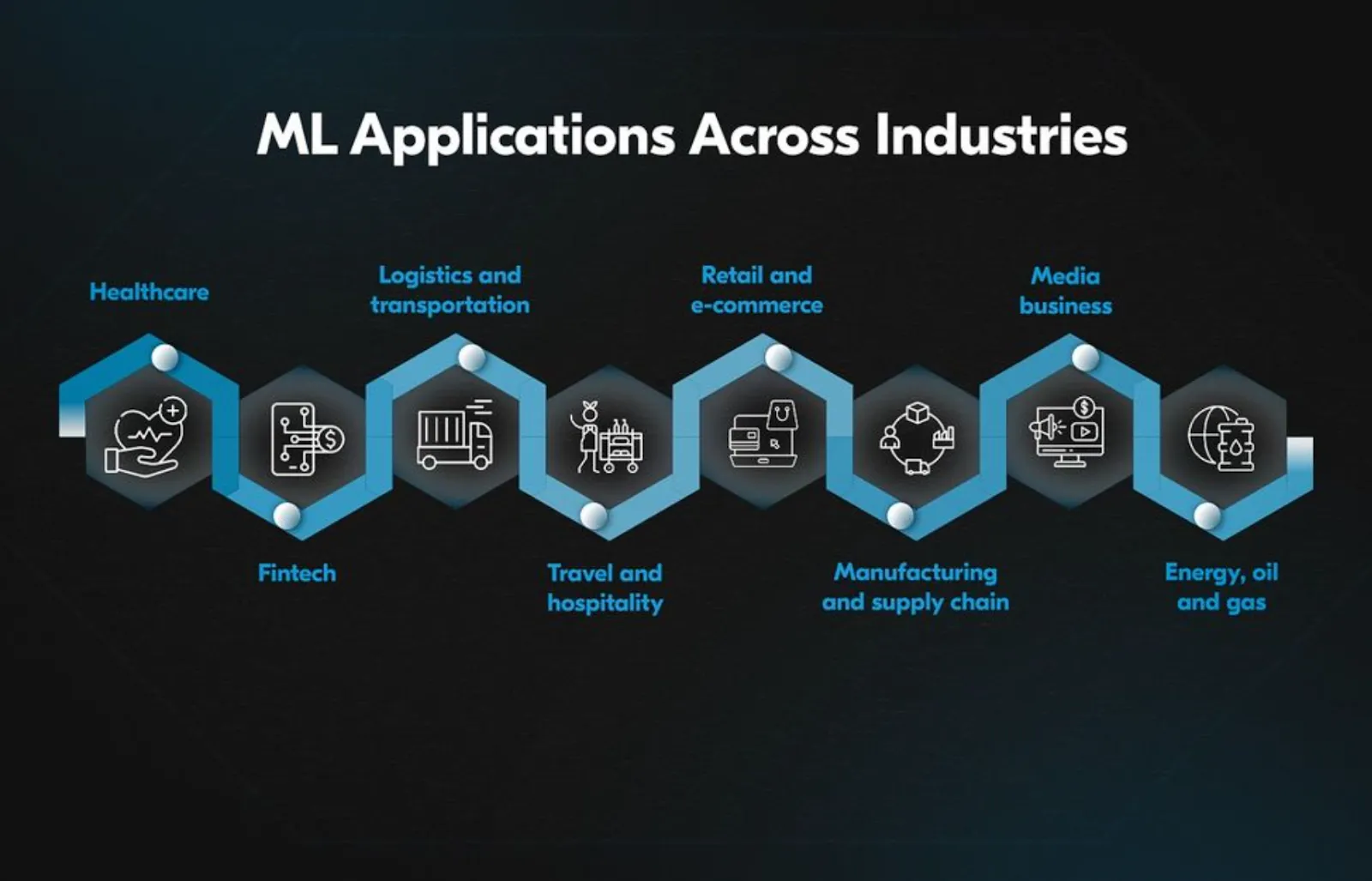
Final Thoughts
Machine learning is revolutionizing industries by transforming operations and unlocking growth opportunities. Its wide-ranging applications empower decision-making and enhance customer experiences, across healthcare, retail, logistics, finance, and more.
The journey of ML adoption continues, offering endless possibilities for those who embrace its potential.
Levisoft is an experienced outsourcing vendor, ready to guide you on this transformative journey. Contact us to explore how ML can drive your business success!
Sources of Information
- Machine Learning & Artificial Intelligence Global Market Overview — Statista
- https://www.statista.com/outlook/tmo/artificial-intelligence/machine-learning/worldwide
- A Collective Report on AI & ML 2023 — Harvard Business Review Press
- https://www.tandfonline.com/doi/abs/10.1080/15228053.2023.2228675






.png)
